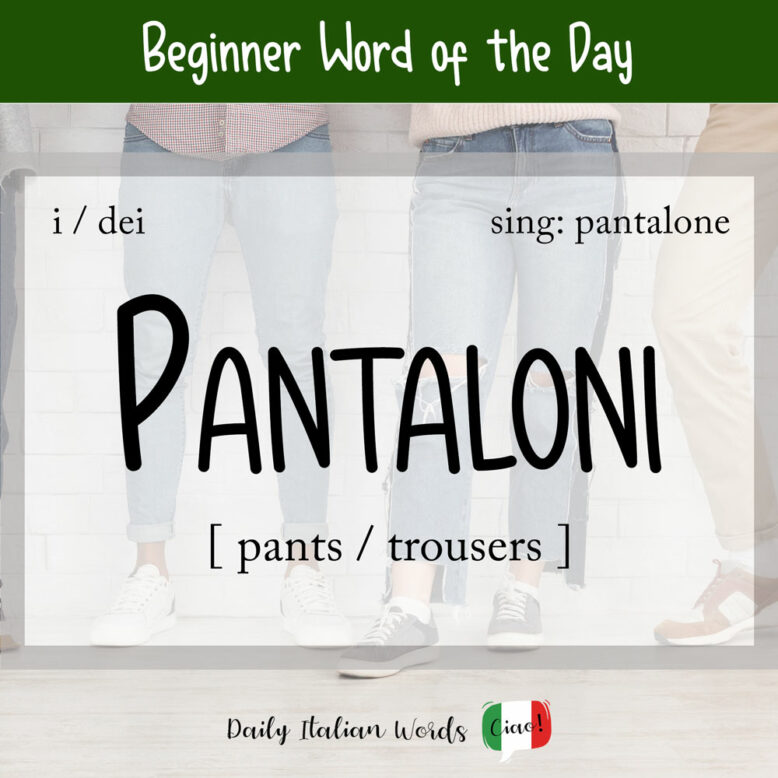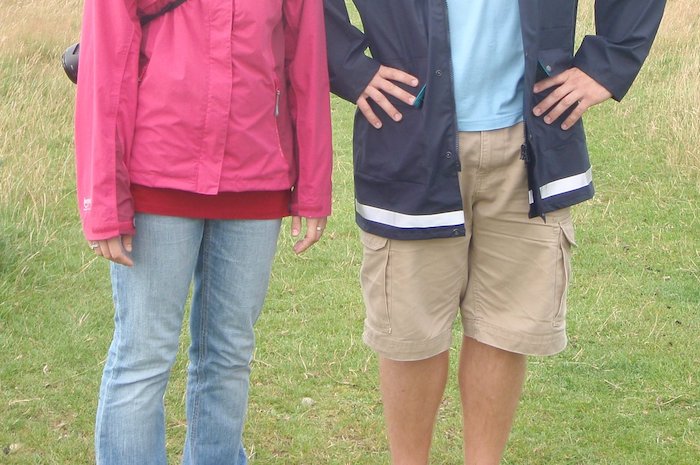The word for trousers or pants in Italian is pantaloni. If you find yourself struggling to remember this term, simply think of the English word pantaloons!

Both the Italian pantaloni and English pantaloons derive from the French pantalon, which in turn owes its name to the famous Commedia dell’Arte character, Pantalone, whose costume consists of long culottes.
Some of the most popular kinds of trousers include:
- jeans = jeans
- pinocchietti / pantaloni alla Capri = Capri pants
- pantaloni del pigiama = pijama pants
- pantaloni da tuta / ginnastica = sweatpants
- pantaloni a zampa / campana = bell-bottoms / flares
- pantaloni a vita bassa = hip-huggers

The singular pantalone is rarely heard if not in reference to just one leg of a pair of trousers (paio di pantaloni).
Posso provare questo paio di pantaloni?
Can I try on this pair of trousers?
Below are a number of important verbs you’ll see used along with pantaloni in conversation:
- infilarsi i pantaloni = to put on (one’s) trousers
- mettersi i pantaloni = to put on (one’s) trousers
- indossare i pantaloni = to wear trousers
- togliersi i pantaloni = to take off (one’s) trousers

The diminutive pantaloncini, which literally translates as small trousers, is the word Italians give to shorts. Another way of saying the same thing is pantaloncini corti (lit: short small trousers). The pejorative, pantalonacci on the other hand, refers to trousers that are old and worn out.
A somewhat vulgar expression is farsela nei pantaloni (to do it in your trousers). It translates as to sh*t or to p*ss oneself out of fright.
If you say that a woman porta i pantaloni (wears the trousers), the implication is that she is the person in the relationship who is in control and makes decisions.
È mia mamma che porta i pantaloni in casa.
My mum is the one who wears the trousers at home.
A close synonym of pantaloni is calzoni but the latter is somewhat outdated and isn’t often heard in conversation.
Heather Broster is a graduate with honours in linguistics from the University of Western Ontario. She is an aspiring polyglot, proficient in English and Italian, as well as Japanese, Welsh, and French to varying degrees of fluency. Originally from Toronto, Heather has resided in various countries, notably Italy for a period of six years. Her primary focus lies in the fields of language acquisition, education, and bilingual instruction.


